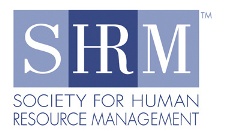
HR is always a day late and a dollar short.
-Chris Powell, CEO BlackbookHR
That comment from Chris Powell has stuck with me since our initial conversation, and I think it's a reality we all need to be aware of and try to mitigate. Think of it this way — when someone asks finance, sales, or operations about specific facts, figures, and projections, they can typically throw out a ballpark answer within moments.
But for some reason, HR has always taken the “let me get back to you on that†approach. And that, my friends, is not a winning strategy.
One of the things I was taught early in my HR career is to always have the trusty response of “let me get back to you” ready for when someone asks you a question you don’t know. Over time, I have seen the use of that grow until it’s used on an almost daily basis as a way for HR pros to get out of conversations they are not comfortable with (discussions of revenue, sales, productivity or other hard numbers).
We can’t let that be a crutch any more. It’s time to start learning the business, having some insights ready to go, and being able to share information as quickly as other organizational leaders.
For instance, if someone asks the VP of sales how his numbers are looking, he can (more often than not) immediately respond with a good approximation of the current status. Think for a moment about how that compares credibility-wise when someone asks HR a similar question and we say, “Um, I’ll have to check and let you know.”
Let’s fix it, shall we? Check out “‘Let me get back to you on that’ is not a strategy” over at the Brandon Hall Group blog for more info and to see how to resolve this longstanding problem.
 But it’s rare to think about that in the context of employees. Yeah, you might be “strategic” and “aligned” with your organization, but how much faith does the average employee have in you? How do they perceive you?
But it’s rare to think about that in the context of employees. Yeah, you might be “strategic” and “aligned” with your organization, but how much faith does the average employee have in you? How do they perceive you?
 Credibility. Some of us have it, and some of us don’t. Do you know how to establish credibility? What about how to maintain it for the long term? If you’ve lost it as a result of a dishonest action or some other similar factor, then that’s one thing, but it’s a whole other issue when you are starting from scratch. Today we’ll look at how to establish credibility when you have none to begin with.
Credibility. Some of us have it, and some of us don’t. Do you know how to establish credibility? What about how to maintain it for the long term? If you’ve lost it as a result of a dishonest action or some other similar factor, then that’s one thing, but it’s a whole other issue when you are starting from scratch. Today we’ll look at how to establish credibility when you have none to begin with.